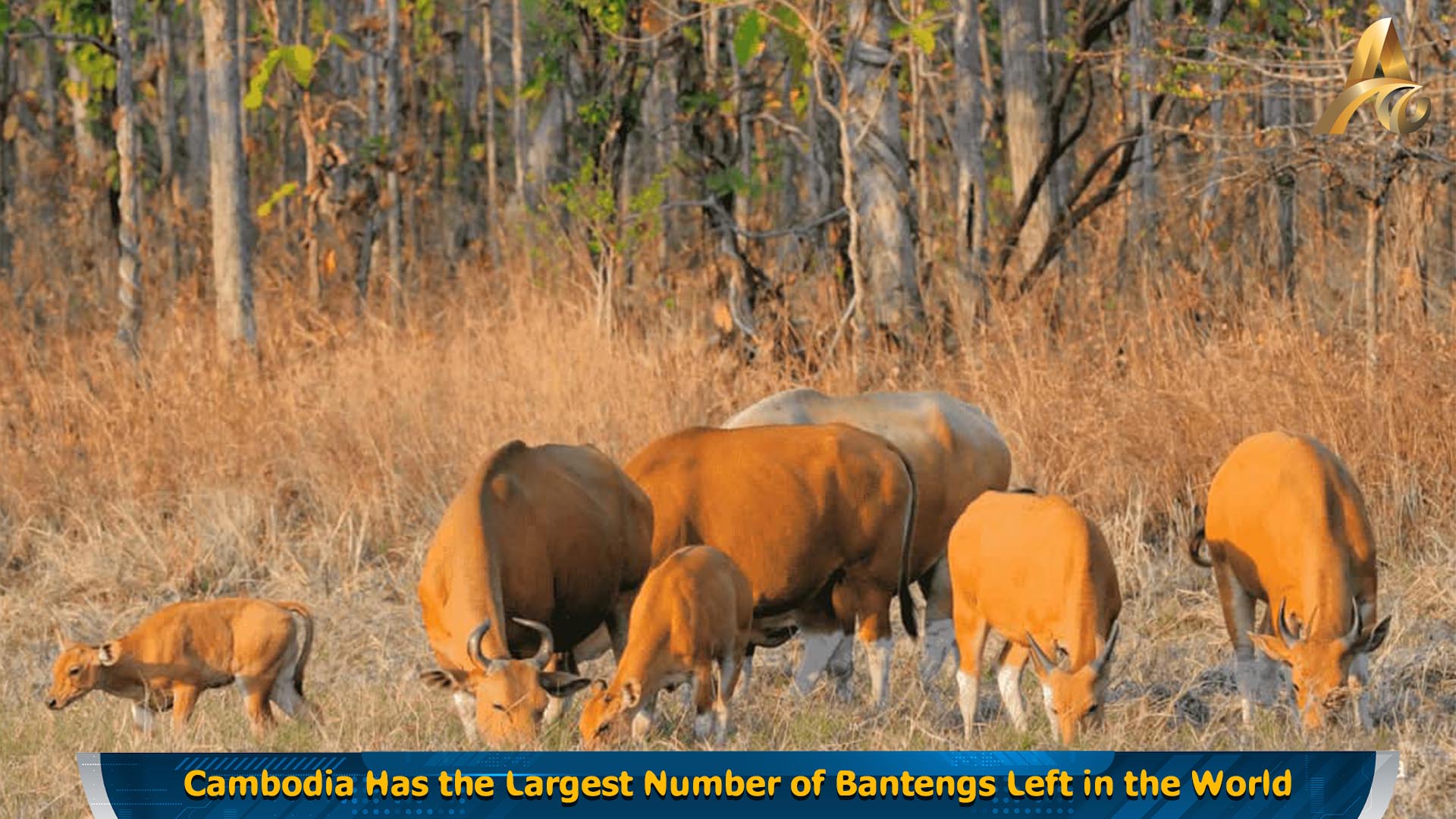PHNOM PENH: A Spokesperson for the Ministry of Environment has stated that Cambodia is still home to the world's largest population of banteng, a species of cattle found in Southeast Asia. It is estimated that there are only about 4,000 Banteng left in the world.
Secretary of State and Spokesperson for the Ministry of Environment, Neth Pheaktra, shared on his official social media page on Tuesday, 6 December 2022, that the banteng is listed on the IUCN Red List as an endangered species. He added that based on the IUCN's data, it is estimated that there are only about 4,000 bantengs left in the world, and that Cambodia has the largest population of bantengs today, with more than 1,500.
He said bantengs are scattered across the country, including in the northeast, southwest, and north of Cambodia, and can also be found in other Southeast Asian countries like Myanmar, Laos, Malaysia, Vietnam, and Thailand. Bantengs live in a habitat of mixed forests and grasslands, and they prefer to live in herds or with wild oxen, deer, and gaur. The animals also prefer to live along streams and avoid sloping areas. Bantengs feed in the morning and at dusk, and usually the oldest animal in the herd will lead the others.
The Secretary of State also said that bantengs reproduce from May to June, can give birth to one or two offspring after 10 months of pregnancy, and the mothers can reproduce again two months after giving birth.
This species is rare and on the verge of extinction in some countries that were once inhabited by them. Studies have shown that bantengs are one of the most endangered species in the world and are threatened by illegal poaching. The number of bantengs has dropped dramatically in the last few decades due to habitat loss and poaching.

























